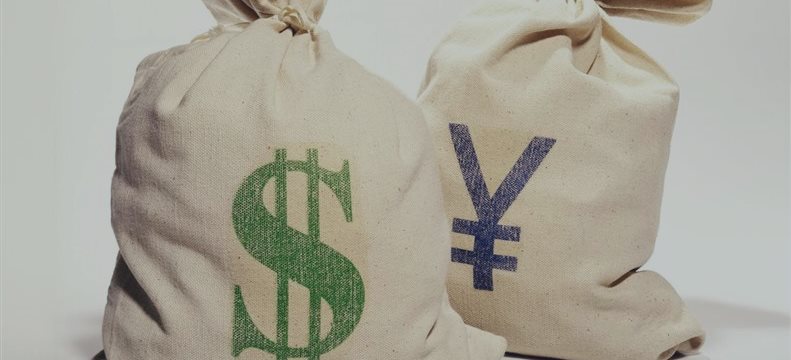Japan's currency fell for a second day against the greenback as global stocks rose before U.S. reports this week that economists said will show an improving labor market. Australia’s dollar climbed against all its 16 major peers.
“The decline in oil has stopped and stocks are being bought back along with the dollar as risk aversion dissipates,” said Akira Moroga, manager of currency products at Aozora Bank Ltd. in Tokyo. “The dollar could recover to 120 yen if market sentiment stays positive.”
The yen declined, as a rally in crude oil prices reduced demand for
haven assets. It dipped 0.5 percent to 119.86 per dollar at 6:54 a.m.
in London after yesterday's slide of 0.7 percent. Japan’s currency
weakened 0.4 percent to 141.70 per euro.
The dollar strengthened for a fifth day against the euro amid speculation the Federal Reserve is moving toward raising interest rates, gaining 0.2 percent to $1.1822 per euro after advancing to $1.1802 yesterday, the strongest since January 2006.
The MSCI Asia Pacific Index of shares jumped 1.2 percent after the Standard & Poor’s 500 Index (SPX) rose 1.2 percent yesterday. Crude oil has rallied more than 4 percent to $48.86 a barrel since falling to $46.83 yesterday, the lowest since April 2009.
“We have a dollar-yen forecast of 132 by the end of this
year,” Sue Trinh, senior currency strategist at Royal Bank of
Canada in Hong Kong, said in a Bloomberg Television interview.
“Layers of yen weakness” include the movement of assets held by the Government Pension Investment Fund into overseas holdings away from Japanese bonds, she said.
According to a Bloomberg News survey before today's report, initial claims for U.S. jobless benefits fell to 290,000 last week, from 298,000 the previous week. Employers added 240,000 workers in December, after hiring 321,000 in November, a separate survey showed before the figure is released tomorrow.
As Bloomberg reports, there is a 59 percent likelihood the U.S. will raise its target federal funds rate from a zero-to-0.25 percent range to at least 0.5 percent by September.
Australia’s dollar rose against all its 16 major peers as the Bureau of Statistics said building approvals climbed 7.5 percent in November, while economists surveyed by Bloomberg predicted a decrease of 3 percent.
The Aussie gained 0.4 percent to 81.08 U.S. cents after tumbling to 80.33 yesterday, the lowest since July 2009.



